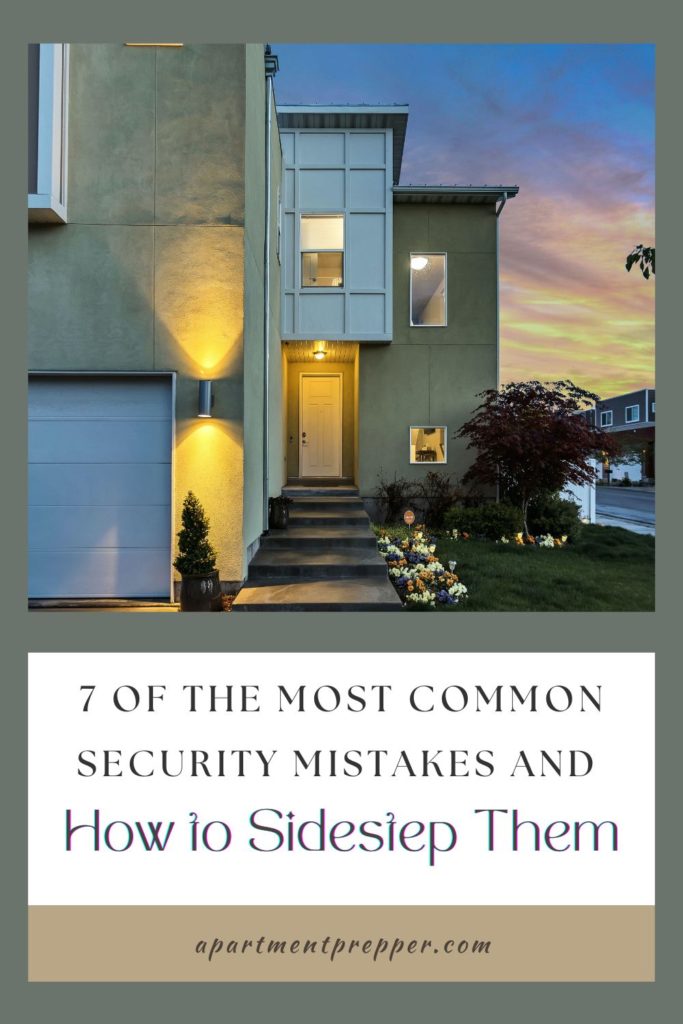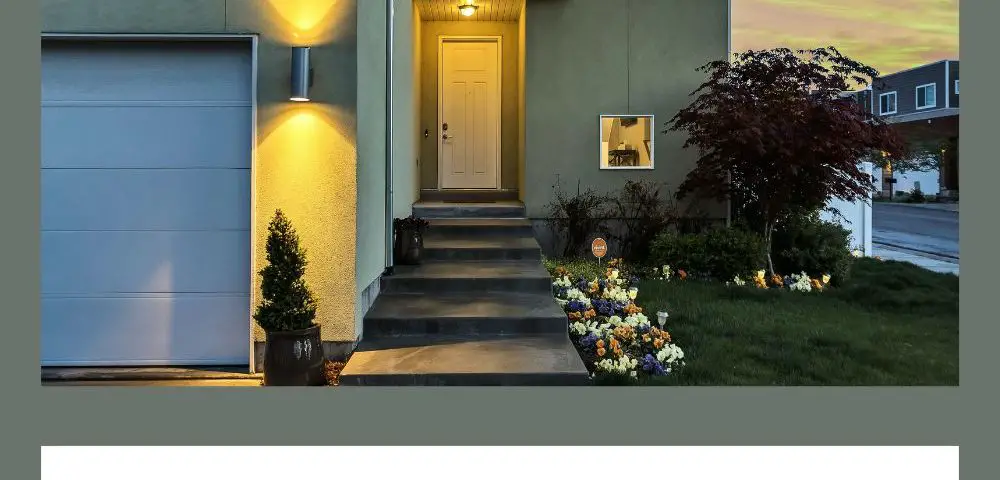Written by Martin Banks
Proper security is essential to your family’s privacy and well-being, yet many preppers continue to make the same mistakes when protecting their homes. Here are seven of the most common security mistakes and how you can avoid them.
1. Hiding Keys Outside
Many people hide a spare key outside their homes. Some do it because they have a bad habit of losing or forgetting their key, while others want to give their neighbors access to the home in case of an emergency. Those are fine reasons, but poor execution is the problem.
Hiding your key under a place-mat or an obvious fake rock won’t fool most intruders. Here are some other lousy hiding places that people use:
● Mailboxes
● Potted plants
● Grills
● On top of a porch light
● Inside the door trim
If you insist on hiding a spare key outside, put it in a small box or bag and stow it as far away from the entrance as possible. For example, a front door key is safer in the backyard and vice versa. The spot shouldn’t stand out to anyone else, but it should stand out to you.
2. Neglecting Landscaping Details
Unkempt landscaping has two significant benefits for criminals. First, it suggests that the homeowner is lazy or physically limited, doesn’t spend much time outside and pays little attention to detail – three signs of an easy target. These factors partly explain why elderly people are the most common burglary victims. You’re not that old yet, so don’t act like it.
Secondly, a messy yard with untrimmed trees and overgrown bushes provides hopeful intruders with extra cover. A long tree branch near a second-floor window might even create another access point into your home.
On the flip side, paying close attention to your home’s landscaping details will deter suspicious characters. A pristine landscape tells the world that you’re able-bodied, know every inch of your property and will notice if something is out of place. Your curb appeal and neighborhood reputation will also improve, as a bonus.
3. Leaving Valuables Exposed
You also need to pay closer attention to the contents inside your home. Leaving a valuable item the kitchen counter might seem harmless, but a passerby might see the item through a window and decide to make your home a target. Most windows provide two-way visibility, after all. Get into the habit of hiding your valuables when you leave home or carrying them at all times.
Some people put their precious belongings in small safes, while others have created clever hiding spots in their homes that nobody else knows. Both are great options. You should also decrease the visibility into your home by dimming the lights and drawing the curtains. Not every room in the house needs to be illuminated.
4. Only Using Static Lights
Many people install outdoor lighting to bolster their home security, but they don’t always choose the best fixtures or use them to full effect. Static lights might do a fine job illuminating specific spots – a gate or the front porch, for example – but they won’t stop an intruder because he can simply learn to avoid those areas.
Static lights can still play key roles in protecting high-traffic areas around your property, but there are far better lighting options for complete home security, such as motion-sensor lights and floodlights. These lights will also help lower your electricity bill, so what are you waiting for?
5. Oversharing on Social Media
Oversharing on social media can reveal a lot of information, including your family members, occupation, daily routine and exact location, among other things. Criminals scour social media all the time looking for easy targets who willingly reveal sensitive details about their lives.
Ask yourself: are 100 likes on Instagram worth jeopardizing your privacy and safety? Of course not. Don’t talk about your travel plans and don’t post vacation pictures until after you get home. Stop broadcasting your movements to the world and use social media as it was intended – for entertainment and keeping in touch with friends.
6. Being Careless with the Mail
A full mailbox is one of the most accurate indicators of an empty house that a burglar could ask for. If you’re planning for an extended trip, you should either call the post office to temporarily suspend your mail OR ask a neighbor to collect the mail while you’re away. The latter option is slightly more beneficial because it guarantees some activity around the house.
If you ordered something online for delivery, track the package closely until it reaches your front porch. You should avoid being away from home when the package arrives. Someone can walk by at any moment and decide to steal it. Smart video doorbells and hidden security cameras are extremely effective at deterring porch pirates.
7. Relying on Self-Monitoring
Many devoted preppers and survivalists self-monitor their properties with DIY security systems, but one pair of eyes can only see so much. If you rely on self-monitoring, you should swallow your pride and reach out to a home security company to assist with your efforts. These companies can provide expert security knowledge and craft a 100% unique system to meet your property’s needs.
It’s All About the Little Things
We don’t often think of factors like good landscaping, mailboxes and social media habits when considering our home security, but these little things could cause huge vulnerabilities if you neglect them. Effective home security is about the little things. Pay attention to these seven details to keep yourself, your family and your property safe.
About the author
Martin Banks is the managing editor at Modded. Follow him on Twitter @TModded for frequent updates on his work.
We are an affiliate of Amazon.com, which means we received a small commission if you click through one of our Amazon links when you shop, at totally no cost to you. This helps keep the lights on at the blog. Thanks!
Photo by Brian Babb on Unsplash


